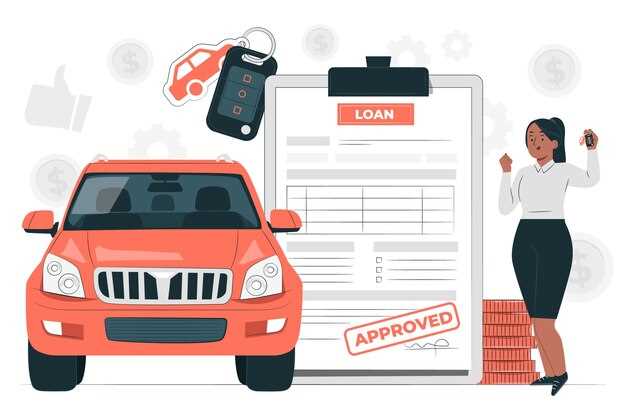
When it comes to purchasing a vehicle, securing the right financing can significantly impact your overall budget. Understanding how to navigate the auto loan landscape is crucial for obtaining favorable interest rates, which can save you money over the life of your loan. This article will provide you with actionable strategies to help you find the best auto loan rates.
First and foremost, your credit score plays a pivotal role in determining the interest rate you’ll be offered. Improving your credit score prior to applying for a loan can open doors to lower rates. Additionally, being aware of the various types of loans available–such as secured versus unsecured loans–can also influence your financing options, allowing you to choose the most beneficial path.Comparison shopping between different lenders is another essential step to ensure you are getting the most competitive rates available.
Moreover, consider the length of the loan term and how it affects your monthly payments and the total interest paid. Shorter loan terms often come with lower interest rates, though monthly payments will be higher. Balancing your budget with your financial goals is essential when selecting the right loan for your needs.
By following these simple tips and being proactive in your research, you can greatly enhance your chances of securing the best auto loan rates, making your vehicle purchase a rewarding investment.
Understand Your Credit Score and Its Impact
Your credit score is a crucial factor in determining the interest rates you receive on auto loans. Lenders use this numerical representation of your creditworthiness to assess the risk associated with lending you money. A higher credit score generally leads to better rates, while a lower score can result in higher costs or even loan denial.
The credit score ranges from 300 to 850, with higher scores indicating better credit health. Below is a breakdown of the typical credit score ranges and their implications:
| Score Range | Credit Rating | Loan Implications |
|---|---|---|
| 300 – 579 | Poor | High interest rates, potential denial |
| 580 – 669 | Moderate interest rates, limited loan options | |
| 670 – 739 | Good | Competitive rates, more loan options |
| 740 – 799 | Very Good | Low interest rates, favorable terms |
| 800 – 850 | Excellent | Best interest rates, premium loan options |
To improve your credit score, focus on paying bills on time, reducing existing debt levels, and avoiding new hard inquiries. Monitoring your credit report for errors can also help maintain or boost your score. By understanding and actively managing your credit score, you can position yourself for the best auto loan rates available.
Shop Around for Multiple Lenders

Finding the best auto loan rates requires you to explore options beyond your local dealership. Start by researching various financial institutions, including banks, credit unions, and online lenders. Each lender offers different terms, rates, and eligibility criteria, so comparing several options is essential to secure the most favorable deal.
When shopping around, it’s important to get pre-approved for loans from multiple lenders. Pre-approval gives you a clear understanding of the rates and terms you’re eligible for. This not only helps in comparing offers but also strengthens your negotiating position when discussing financing with dealerships.
Don’t overlook credit unions, as they often provide lower interest rates and more favorable terms compared to traditional banks. Be sure to check local and online credit unions as they may have membership requirements that can benefit you.
While evaluating lenders, focus on the Annual Percentage Rate (APR), loan duration, fees, and penalties. A lower APR can save you significant amounts over time, while transparency about all associated fees will save you from surprises later. Take the time to read customer reviews and check the lender’s reputation to ensure you are working with a reliable institution.
Finally, remember that interest rates can vary significantly based on your credit score. If you have a good to excellent credit profile, you are more likely to qualify for lower rates. However, even if your credit is less than perfect, shopping around can still yield competitive options that fit your budget.
Consider the Loan Term Length
When applying for an auto loan, the term length can significantly impact your monthly payments and overall loan cost. Typically, loan terms range from 36 to 72 months, with some lenders offering even longer durations. A shorter term generally leads to higher monthly payments but allows you to pay less in interest over the life of the loan.
Evaluate Your Budget: Before deciding on a loan term, analyze your budget to determine how much you can comfortably afford in monthly payments. A longer term may seem appealing due to lower payments, but it can result in higher interest costs and make the total purchase price of the vehicle significantly more expensive.
Assess Your Financial Goals: Consider what you want to achieve financially. If your goal is to own the vehicle outright in a shorter period, opting for a 36- or 48-month term would be beneficial. However, if you prioritize cash flow and need lower payments, longer terms might be necessary.
Interest Rates and Terms: Remember that interest rates may vary based on the length of the loan. Lenders often offer better rates for shorter terms, resulting in savings over time. It’s crucial to compare different loan scenarios to understand how term length affects your rate and total loan cost.
In conclusion, the loan term length can have significant implications on your auto financing experience. Carefully consider how it aligns with your financial situation and long-term objectives to secure the best rates and terms available.
Make a Larger Down Payment
One of the most effective strategies to secure better auto loan rates is to make a larger down payment. By putting down more money upfront, you reduce the overall loan amount, which in turn minimizes the lender’s risk. Lenders generally view borrowers who can make substantial down payments as more financially stable and responsible, often resulting in improved interest rates.
A larger down payment can lead to lower monthly payments, making your budget more manageable. This reduction also results in less interest paid over the life of the loan, effectively saving you money in the long run. Additionally, a significant down payment can help you avoid private mortgage insurance (PMI) if applicable, further cutting down on costs.
Furthermore, aiming for at least 20% of the vehicle’s purchase price as a down payment may also help you qualify for better loan terms. It demonstrates to the lender that you are serious about your financial commitment to the vehicle. Having more equity in the car reduces the likelihood of being “upside down” on your loan, where you owe more than what the car is worth, which can be beneficial if you need to sell or trade in your vehicle down the road.
Overall, saving for a larger down payment can provide substantial financial advantages, ultimately making your auto loan experience smoother and more affordable.
Look for Special Discounts and Incentives
When searching for the best auto loan rates, it is essential to be aware of special discounts and incentives offered by lenders. These can significantly reduce the overall cost of your loan. Many financial institutions provide various promotions, including reduced interest rates for qualified borrowers, cashback offers, or discounts for automatic payments.
Incentives may also come from the dealerships themselves. Manufacturers often have partnerships with banks to offer special financing deals on specific models. These deals can include lower interest rates or deferred payments, making them an attractive option for buyers. Be sure to inquire about any ongoing promotions when visiting dealerships.
Additionally, membership organizations, such as credit unions or certain professional associations, frequently offer exclusive loan rates for their members. If you belong to such an organization, it’s wise to compare their offers to those from traditional banks. This can sometimes yield more favorable terms.
Always read the fine print associated with discounts and incentives. Some offers may require you to meet specific criteria, such as having a good credit score or meeting certain income thresholds. Understanding these requirements can help you avoid surprises when applying for your loan.
Lastly, don’t hesitate to negotiate. If you find a better rate from a different lender, use it as leverage to potentially secure a better deal with your preferred bank. Being proactive in your search for special discounts can lead to substantial savings on your auto loan.
Negotiate the Loan Terms with Lenders
Negotiating loan terms can significantly impact the overall cost of your auto loan. By effectively discussing specific terms with lenders, you can secure better rates and conditions that align with your financial situation. Here are key strategies to help you negotiate effectively:
- Do Your Research: Before approaching lenders, gather information on current market rates for auto loans. Utilize comparison websites and consult multiple financial institutions to understand what rates are available.
- Know Your Credit Score: A strong credit score can boost your negotiating power. Obtain your credit report and verify your credit score, as it will influence the terms lenders are willing to offer.
- Prepare Your Budget: Have a clear idea of how much you can afford to borrow and the monthly payment that fits your budget. This knowledge will help you negotiate more assertively.
- Be Ready to Walk Away: Confidence is key in negotiations. If a lender is unwilling to meet your needs, don’t hesitate to explore other options. This tactic often encourages lenders to reconsider their terms.
- Ask About Discounts: Inquire whether the lender offers any discounts–for example, interest rate reductions for automatic payments, or loyalty discounts if you have existing accounts with them.
- Negotiate Loan Length: A shorter loan term often means lower overall interest payments. However, ensure that the monthly payment fits within your budget before agreeing to a shorter duration.
- Consider Total Costs: Pay attention to fees and additional costs beyond the interest rate. Discuss these factors during negotiations to avoid surprises down the line.
Ultimately, negotiation is about finding a middle ground that benefits both you and the lender. By being well-prepared and assertive, you can improve your chances of securing favorable loan terms.

